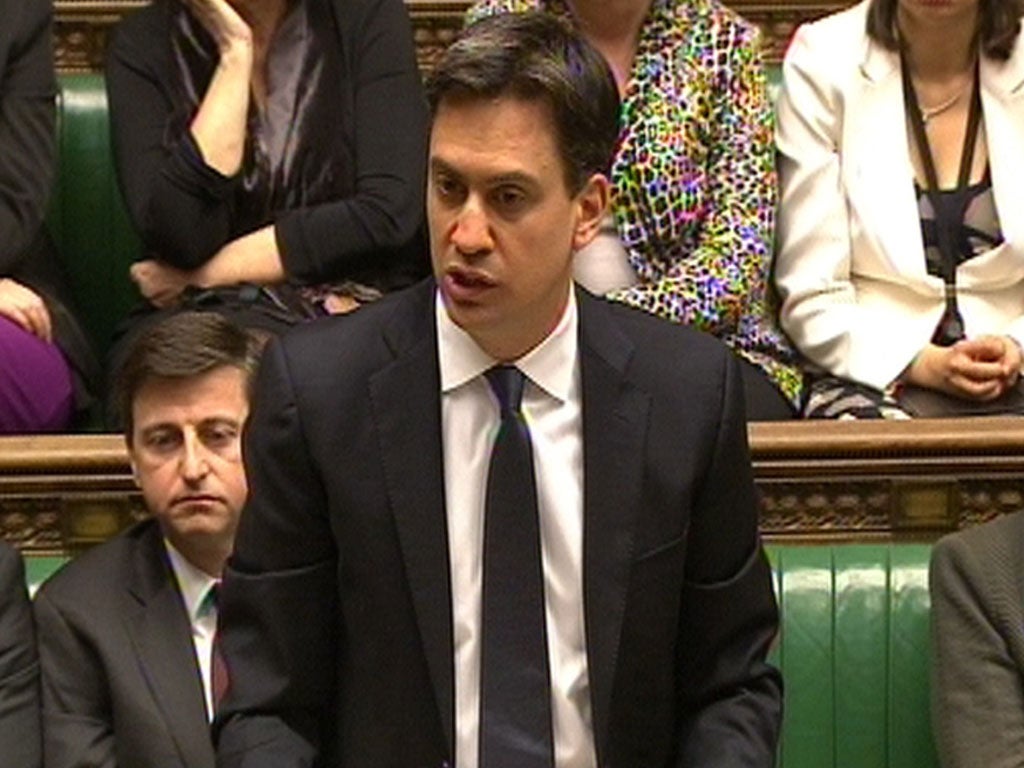MPs' pay rise: Ed Miliband calls for decision now after David Cameron refuses to say whether he will accept 11% increase

Your support helps us to tell the story
From reproductive rights to climate change to Big Tech, The Independent is on the ground when the story is developing. Whether it's investigating the financials of Elon Musk's pro-Trump PAC or producing our latest documentary, 'The A Word', which shines a light on the American women fighting for reproductive rights, we know how important it is to parse out the facts from the messaging.
At such a critical moment in US history, we need reporters on the ground. Your donation allows us to keep sending journalists to speak to both sides of the story.
The Independent is trusted by Americans across the entire political spectrum. And unlike many other quality news outlets, we choose not to lock Americans out of our reporting and analysis with paywalls. We believe quality journalism should be available to everyone, paid for by those who can afford it.
Your support makes all the difference.An attempt by David Cameron to kick the vexed issue of MPs’ pay into the long grass was rebuffed by Ed Miliband on Monday night.
The Prime Minister insisted there was no need to take an immediate decision on whether to accept an inflation-busting 11 per cent salary hike to be recommended by the Independent Parliamentary Standards Authority (Ipsa) on Thursday. It would take MPs’ earnings from £66,396 to £74,000 a year in 2015.
Downing Street, which declined to say whether Mr Cameron would accept the increase, said the proposal would be subject to a review after the May 2015 election, when a final decision would be taken.
But Mr Miliband tried to resolve the issue to prevent further damage to the reputation of politicians while it dragged on. He argued that the package could not go ahead during the biggest cost of living crisis for a generation.
Mr Miliband’s spokesman said: “We cannot have an outcome for MPs which does not command public confidence. Therefore we are asking the Conservatives and the Liberal Democrats for a cross-party approach which recognises the current economic circumstances where workers in the public and private sectors are going through such difficult times.”
Downing Street rejected the Opposition’s proposal. A spokesman said: “There is no need for cross-party talks on this issue because we have already made clear that MPs shouldn’t be getting a pay rise at a time of public sector pay restraint.”
Mr Cameron’s view is unlikely to change by 2015 because last week’s autumn statement made clear that the downward pressure on public sector pay would continue beyond the election.
Clear differences between party leaders and their backbenchers have emerged on the issue. Charles Walker, a Conservative MP, said: “I've been working since I left university for 25 years and I have never turned a pay rise down and I don't intend to start turning any future pay rises down.”
The dilemma for party leaders is that blocking the increase would almost certainly require legislation to take away the power to fix MPs’ pay from Ipsa. It was handed the job in an attempt to end the controversy over MPs voting on their own salaries. Removing the power would take MPs back to square one.
Join our commenting forum
Join thought-provoking conversations, follow other Independent readers and see their replies
Comments